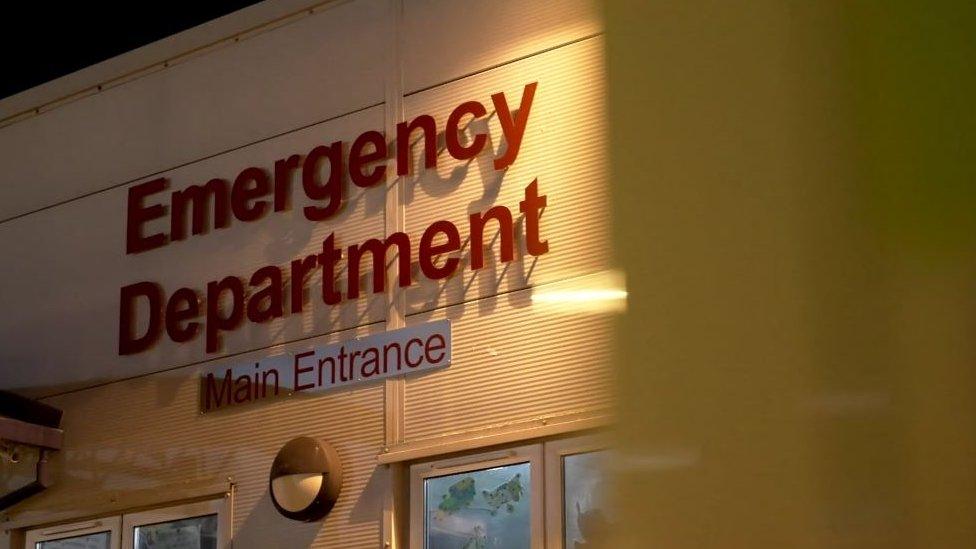NI health crisis: No money to ease A&E pressures, says top official
- Published
- comments
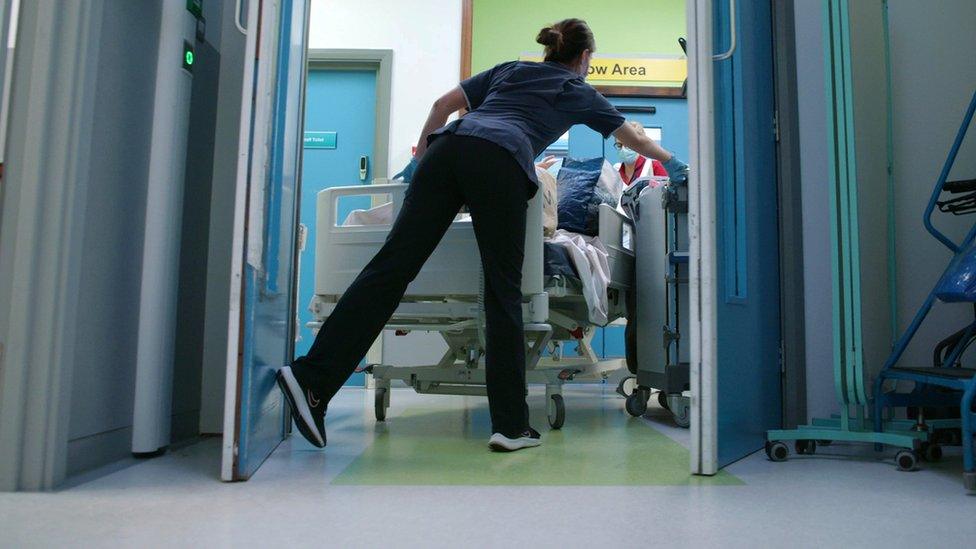
Peter May said the department was "fighting to live within the budget"
In trouble and needs help - that's the verdict on the health service from the most senior civil servant at the department of health.
Peter May said there was no room in the budget for additional social care funding to ease emergency department overcrowding.
Mr May is in charge of the department in the absence of Stormont ministers.
He was speaking to BBC Spotlight, which spent two days filming at Craigavon Area Hospital in County Armagh.
Delays in social care provision are slowing hospital discharges and having a knock-on effect on the ability of emergency departments to transfer patients to wards.
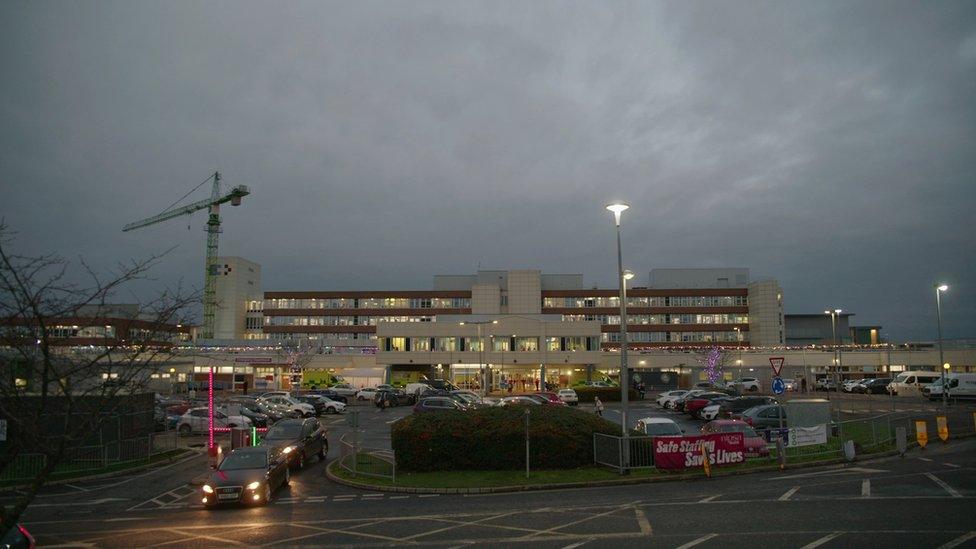
Spotlight filmed for two days at Craigavon Area Hospital's emergency department
Mr May said the previous Health Minister Robin Swann had increased funding for social care, which had some benefit, but there was currently no scope for a further boost.
"We're fighting to live within the budget that we've been set, we have a serious, significant amount of savings to make during the rest of the year to live within that budget," he said.
"There isn't a pot of money sitting there ready to be allocated to social care."
Mr May's comments come as nurses across Northern Ireland stage a second day of strike action.
The Royal College of Nursing's (RCN) director in Northern Ireland, Rita Devlin, said she did not believe there was no money in the service.
"I think there is a lot of money possibly being spent in the wrong places, " she told BBC Radio Ulster's Good Morning Ulster programme.
"If you think there was over £100m spent on agency nursing and agency staff in the last year, and that's a year on year increase.
"If you think how many times that would have funding a pay rise for people."
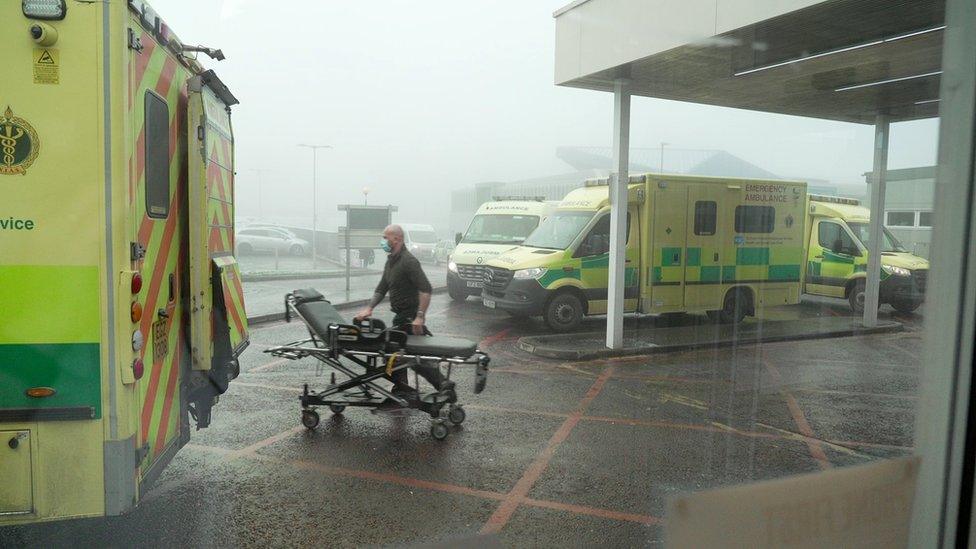
Health trusts have announced a new target that ambulance handovers of patients will take no longer than three hours
'It's hard to keep going'
On Monday, health trust chief executives outlined new targets to try to ease pressure, including patients leaving hospital no later than 48 hours after they are medically fit for discharge and where a suitable placement is available.
There will also be a maximum limit of a three-hour wait for ambulance handover.
Spotlight witnessed first-hand the overcrowding in Craigavon's emergency department, speaking with patients facing long waits for care and staff under intense pressure from the overcrowding.
The emergency department's clinical director, Dr Gareth Hampton, told the programme he and his colleagues were finding that pressure difficult to tolerate.
"It's hard to be as emotionally caring, it's hard to be as driven, it's hard to keep going," he said.
Mr May acknowledged the "passion and commitment" of staff and their frustration at being unable to deliver the level of service they would like.
The Southern Health Trust's chief executive Maria O'Kane told the programme she was disappointed Mr May had ruled out additional funding.
"I think it puts all of us in health in a really difficult position because effectively what we're being asked to do is more for the same and potentially less," she said.
"But, at the same time, we are very aware there's not enough currently to balance the books."
The Northern Ireland Fiscal Council, set up to bring transparency to our public finances, recently revealed that after many years of spending more per head than England on health, Northern Ireland is projected to fall behind England for the first time over the coming years.
NI Fiscal Council member Maureen O'Reilly said: "It leaves us in a very difficult position because we've had higher spending per head, and yet our health outcomes have actually been worse."
Climate change
Mr May agreed the outlook for the health service was grim with demand continuing to outweigh capacity.
He added that Northern Ireland and many countries beyond faced huge challenges in future health provision similar to those of climate change.
"There are similarities in the sense that this is a long-term issue and it's one where the challenge is likely to get greater over time rather than less," Mr May said.
"Medical science has advanced hugely and people are able to recover from and live healthy lives that previously they wouldn't have survived and that's a great thing.
"But it does mean that more people are living to a greater age and towards the end of their life they're likely to be more frail, and that increases the demand for health services quite significantly."
Spotlight: Inside A&E is available to watch now on BBC iPlayer.
Related topics
- Published19 December 2022
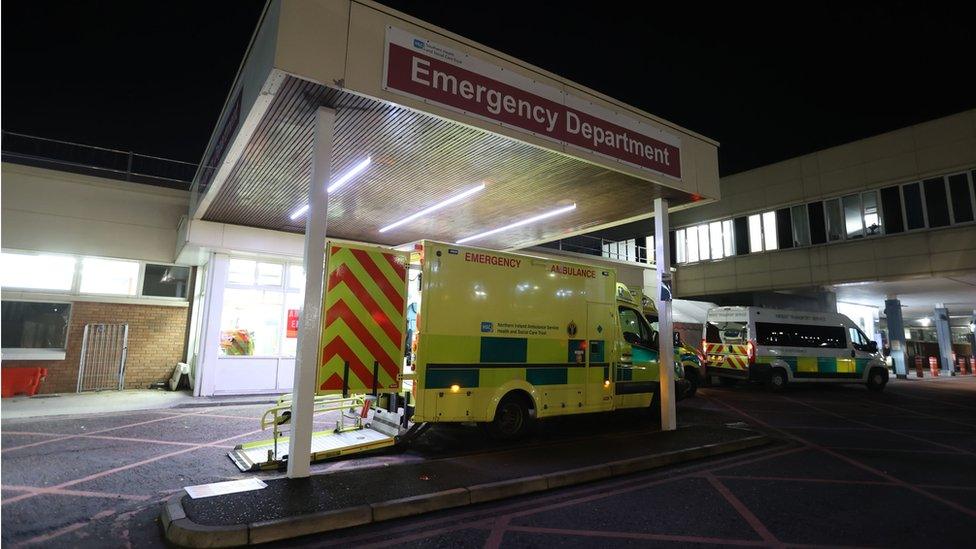
- Published14 December 2022
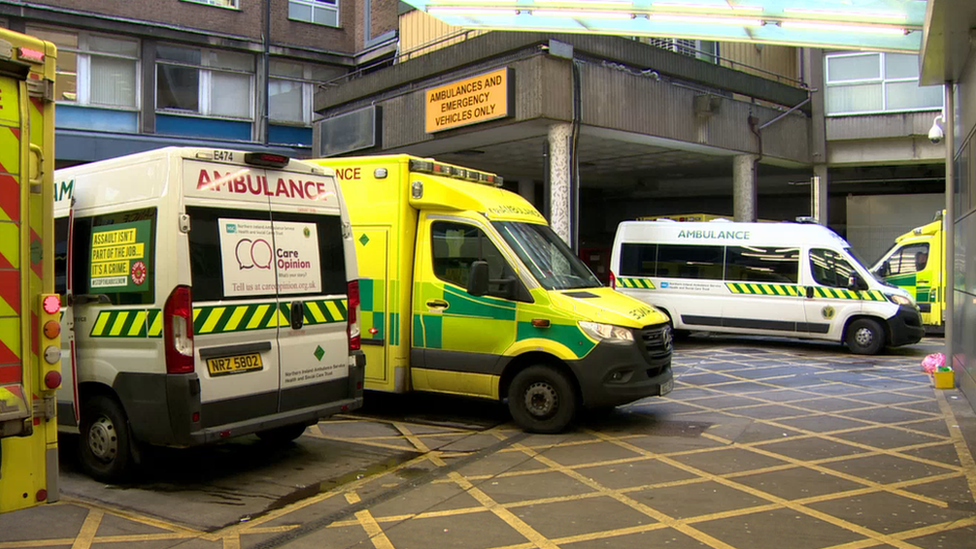
- Published8 December 2022
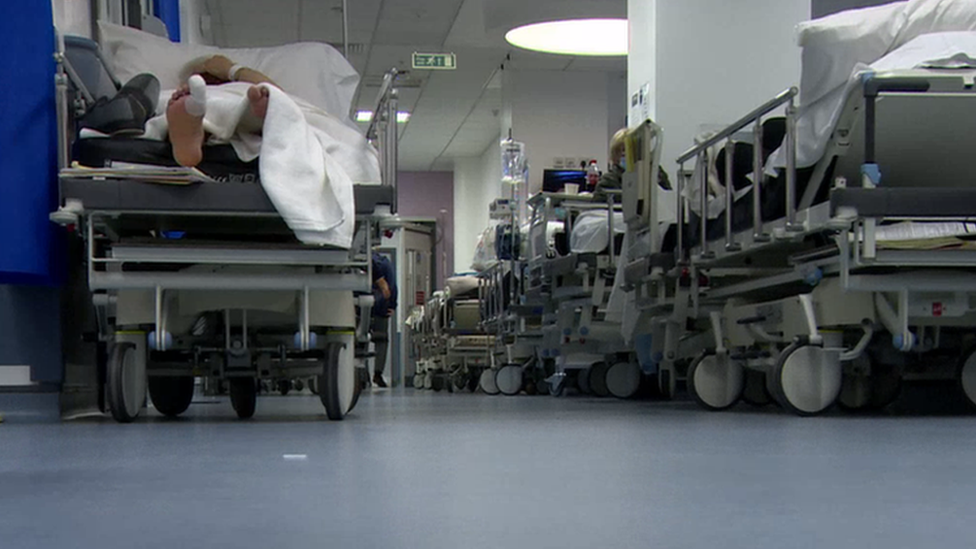
- Published24 November 2022
